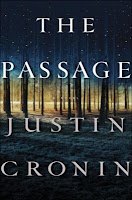Book 2, and apparently the clashing of the five(!) kings was obvious enough without Martin having to get his characters to say it every few pages as he did for Game of Thrones. This novel continues on with the epic plot arc, I believe this was about 1000 pages, although it is hard to tell on the kindle, and felt very similar to the first book. Most reviews I have read seem to regard this as a weaker book. I have some bones to pick but it was still a very impressive and a worthy sequel.
For such a long novel, I was amazed that I was never bored. I was however, confused many times. Who is this Reek guy again? Where is the Dreadfort? Which army is this? Martin expects a lot of the reader - too much on some occasions. When Jojen's prophesy comes true to prove to Bran that he has the power of foresight, Martin expects us to remember the exact cryptic details provided by Jojen hundreds of pages earlier and doesn't bother with any sort of recap.
It wasn't a supper like you said. It was a letter from Robb and we didn't eat it, but-
Martin also does the same with Jojen's later prophesy about the sea breaking over Winterfell. More broadly, being able to hold together all the story threads, which are continually broken by point-of-view changes, is difficult (but still realistic unlike The Savage Detectives). It is probably the most complex plot, in terms of sheer number of characters and the intricacy of their interactions, I have read and still enjoyed. Keeping track of armies and lords in a bewildering array of different castles would be a lot easier with a geographic map. Is it just the kindle edition that is missing maps?
I loved the battle for Kings Landing on the Blackwater river, it was very well written and fascinating to watch the trap sprung. That is, until Tyrion suddenly becomes a dwarf warrior powerhouse cutting down knights and leading a battle charge. This was completely out of character and pretty ridiculous when you consider the reach and strength advantages Stannis' knights would have had on a highborn dwarf who never trains for combat.
Almost as implausible is the fact that all of Tyrion's wildling fighters stayed in his service after they got paid for their efforts in the first novel. Would a bunch of proud, blood-hungry savages with necklaces of human ears really have been happy to sit around in a castle on guard dog duty for a rich lord?
I found Dany's encounter with the warlocks' hallucinogenic maze highly entertaining because it reminded me of a physical challenge or amazing race detour. Although there was another prophesy involved, and no doubt Martin expects me to remember details like this 2000 pages later:
A tall lord with copper skin and silver-gold hair stood beneath the banner of a fiery stallion, a burning city behind him. Rubies flew like drops of blood from the chest of the dying prince, and he sank to his knees in the water and with his last breath murmured a woman's name...
When I say I was never bored, that isn't quite true. I got sick of boring royal history like this:
Aemon took his vows and left the Citadel to serve at some lordling's court...until his royal uncle dies without issue. The Iron Throne passed to the last of King Daeron's four sons. That was Maekar, Aemon's father. The new king summoned all his sons to court and would have made Aemon part of his councils, but he refused, saying that that would usurp the place rightly belonging to the Grand Maester. Instead he served at the keep of his eldest brother, another Daeron. Well, that one died too, leaving only...
I'll end this with some of my favourite quotes. This zinger is from Renly, who I think was a great character, it's a shame he gets killed off:
Stannis studied her, unsmiling. "The Iron Throne is mine by rights. All those who deny that are my foes."
"The whole of the realm denies it, brother" said Renly. "Old men deny it with their death rattle, and unborn children deny it in their mother's wombs. They deny it in Dorne and they deny it on the Wall. No one wants you for their king.
There was some great stuff from Sandor Clegane, including this dig which seems to be aimed partly at other fantasy novels that shrink from violence. Clegane is also starting to seem like less of a bad guy through Sansa's possibly-Stockholm-syndrome eyes:
What do you think a knight is for, girl? You think it's all taking favors from ladies and looking fine in gold plat? Knights are for killing.
The whole section of dialogue between Catelyn and Jaime in the dungeon was brilliant - we saw the true nature of their characters at their most candid moment. This quote from Jaime sums his arrogance up perfectly:
There are no men like me. There's only me.
Onward! Winter is coming.
4 stars.





















